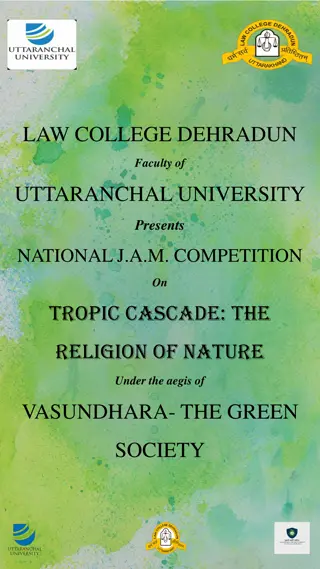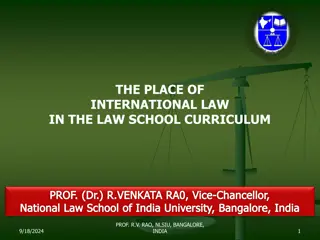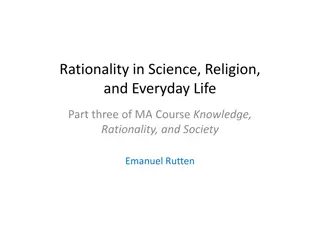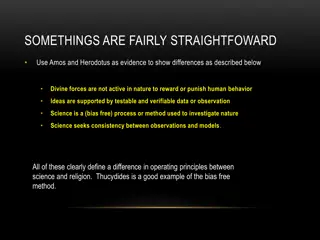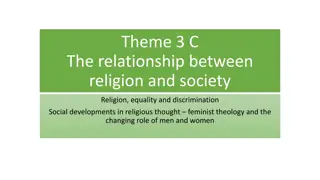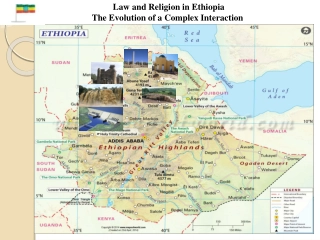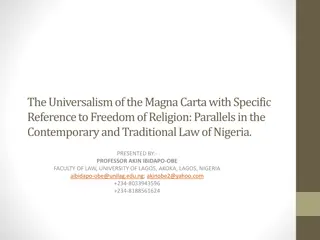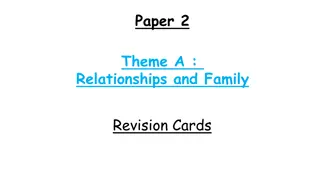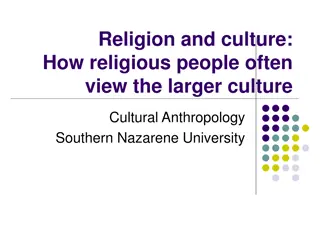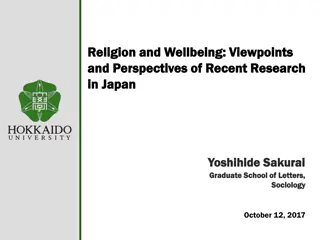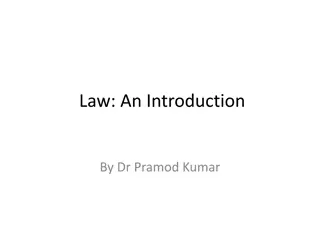Understanding Adultery: Perspectives from Religion, Law, and Society
Adultery, a consensual extramarital relationship deemed unacceptable by societal norms and various religions, has roots in different cultures and laws. This article explores the religious views on adultery, punishments, and societal implications, alongside the legal implications pre and post-decriminalization in India.
Download Presentation

Please find below an Image/Link to download the presentation.
The content on the website is provided AS IS for your information and personal use only. It may not be sold, licensed, or shared on other websites without obtaining consent from the author. Download presentation by click this link. If you encounter any issues during the download, it is possible that the publisher has removed the file from their server.
E N D
Presentation Transcript
SUBMITTED BY: SWAPNA SUDHA SAHOO COLLEGE NAME: SOA NATIONAL INSTITUTE OF LAW SIP - 48 TOPIC NAME: ADULTERY
INTRODUCTION: Adultery has been derived from a French word that mainly evolved from Latin word,"adulterium" which means to corrupt. Click to add text The main definition of adultery is that it is a kind of consensual extramarital sexual relationship which is not considered as acceptable according to the principles of religion, social, cultural, ethics, moral order etc. Click to add text Although adultery as decriminalized, still it thrives in the society till date and violates all the principles of a happy and successful marriage. In the earlier times, adultery was considered as acceptable but after a judgement made by the Supreme Court of India, adultery was declared as a civil wrong.
ADULTERY ACCORDING TO RELIGION: Religion is considered as the most sentimental emotion for every country. It promotes the sense of unity among people. Each and every religion has it's own ideas and objectives. When the concept of adultery comes into picture each and every religion has a different opinion about it. They highly criticize this concept. Whatever may be the religion, but the main objective is that each and every religion consider it as a criminal offence. There are different punishments for such a sinful act by different religions. It is considered so as it hurts the religious sentiments of people. This act is considered to be sinful not only from the religious background but also from the spiritual ground as well.
CONTINUED: According to the Hindu traditional values, adultery is considered sinful which brings marriage to an end and also leads to degradation of the moral values. According to Hindu mythology, marriage is a sacrament which binds the husband and wife in a loyal relationship. So it is illegal to have sexual relationship with any person other than their spouse. According to Muslim law, adultery is considered as Zina or unlawful. The punishment of the same is also fixed by god. Mainly the punishment includes a person to be stoned to death. Bible also considers adultery as illlegal and refers to punishment for both men and women who comit adultery. According to Buddhism, having sexual intercourse outside marriage is considered sinful conduct which prescribes punishment for the same. Judaism also states death penalty for a person who commits adultery.
ADULTERY ACCORDING TO LAW: The concept of adultery was defined under section 497 of IPC of 1860. However in 2018 the section 497 was being struck by Supreme Court of India in the case of Joseph Shine vs. Union of India. In this case it was stated that if the spouse committed suicide on account of adultery then the accused spouse shall be held for abetment to suicide under section 306 of IPC of 1860. The criminalization of adultery however had prohibited certain rights of women, like under Article 21, Right to sexual autonomy. Then the prohibition of Right to expression provided under Article 19 of the Constitution. Then the prohibition of Right to equality provided under Article 14 of the Constitution. Then the prohibition of Right against discrimination
ADULTERY AS A GROUND OF DIVORCE: The Supreme Court of India considered adultery as a ground of divorce which carries along with it civil penalties and not considered as a criminal offence. It was stated under section 13(1) of the Hindu Marriage Act of 1955 that any kind of sexual intercourse with a person other than spouse is a ground for divorce. Also the section 10 of the same act provides adultery as a ground for judicial separation. Also the Indian Divorce Act of sectio 22 provides ground for judicial separation under adultery. The Special Marriage Act of 1954 states that the sexual intercourse which is done with a person other than the spouse is a ground for divorce.
ADULTERY AS CRIMINAL OFFENCE IN CERTAIN CASES: Adultery is considered to be unlawful and illegal in 21 states of America. However recent research stated that some of the American countries don't consider adultery as a crime and still some parts of America follow it. Adultery is prohibited in Sharia law and also considered as a criminal offence. Click to add text The country which considers adultery as a crime for which punishment is also imposed is Taiwan and Indonesia. In 2015, South Korea established a law similar to that of India where the person accused of adultery is punished for 2 years imprisonment . About 60 countries till date have prevented adultery.
POSITIVE CONSEQUENCES OF LEGALISING ADULTERY: People who supported legalising adultery stated the reason that it was not gender neutral. If two persons want to build sexual relationship then there's no point in any third person interrupting them. The legalising of adultery must not be viewed from law point of view rather must be viewed from moral conduct. This was stated by certain critics who believed in the positive consequences of legalising adultery. During the time of 1950-55 of the Hindu Code bills and the Dowry Prohibition Act of 1961 it was considered that men are the ones who are culprits and they should be punished for their wrongul deeds so there was point of providing any protection or security facilities to the women of the society. But now women are more literate, independent and full of zeal and enthusiasm so no need of such laws now.
NEGATIVE CONSEQUENCES OF LEGALISING ADULTERY: Marriage is considered to be the most pious thing on earth which binds two people in a relationship full of love, respect, trust and understanding. Anything done that breaks any one of the foundations of the above will be considered to be unacceptable in the society. One of the illegal act done in such respect is adultery. Legalisation of adultery is considered to be mostly influenced by westernization and modernization. The modern or the western countries mostly involve in the extra marital affair which give rise to adultery. The number of cases will increase if it will be decriminalised.
CONCLUSION: Decriminalization of adultery will help the society towards the path of self- discovery by prohibiting the law that affects the integrity, dignity and freedom of women. It is unacceptable and unethical as because it affects the pure relationship of marriage and creates a rift in it which is considered to be sacred institution of the society. Our country needs to eradicate the discrimination and promotes gender equality. Marriage being a relationship which is a fundamental unit of the society needs to be protected and no form of cheating or adultery must be committed by any of the spouses. Further in case of adultery being committed by either of the spouses, the other spouse has the right of divorcing him/her on ground of adultery.
THANK YOU SWAPNA SUDHA SAHOO SIP 48














